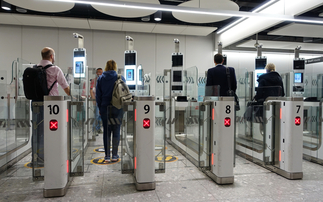Remote working is creating device manageability challenges - and IT leaders need to get to grips with the new normal quickly, or be held responsible for security failings
The coronavirus has pushed large numbers of organisations' workforces pushed out of head office and into their homes.
The move may have been forced on departments and teams - including IT itself - but there have been a number of benefits. For example, agile working has not only aided national recoveries from the health crisis, but also helped enterprises to continue functioning while keeping their costs down.
The need for long-term solutions
As previously explored in Computing reports on this topic, many of the changes in employee behaviour from remote working may be with us for the long term, or even become permanent as people stay away from cities and companies look for ways to minimise their property expenditure.
This suggests that IT management solutions need to be put in place for the long term too. However, pushing the perimeter of organisations far beyond corporate headquarters to wherever the furthest employee may be is creating device manageability challenges for IT leaders.
And when those challenges have not been met strategically, but rather tactically in response to the crisis, IT professionals need to get to grips with the reality of their situations fast, or risk being held responsible for any security failings among company staff.
The answer is in the cloud
Many IT professionals report that managing a diverse mix of devices - both corporate and employees' own - in the cloud is the only workable solution.
It also offers benefits of its own. These might include a significant return on investment (ROI) and payback in less than a year - not just financially, but also in terms of saved time.
For example, a report published by Forrester Research in 2019 from a survey of over 250 IT leaders revealed that the Intel vPro® platform could generate ROI as high as 155 percent, with payback in just nine months.
No more wasted time
Some of these savings came from a dramatic reduction in IT and security support hours - 8,500 - with end-users (in a composite organisation posited from the research findings) saving up to 28,000 hours in total from improved IT and security management.
Managing devices in the cloud led to reduced security support resolution time and costs, with minor security problems falling by up to 75 percent, and large issues by half. Any issues that were still reported were typically resolved much more quickly.
According to Forrester, savings could be as much as a half-hour a week for each employee via improved performance and reliability.
Advantages come as standard
It should be added that cost and time savings in the cloud can be significantly boosted by standardising on a single hardware and OS platform. Of course, this may not be possible when workers are using a variety of their own devices to access core applications and data.
With a standardised estate, IT managers would not only be able to set security and usage policies with greater confidence, but also manage upgrades and patches from a central point. In this way, employees would be better protected against security risks, which have been rising during the crisis.
Applications and OS upgrades can also be installed much more efficiently and conveniently with a standardised, centrally managed system. In turn, employees lose less work time to security vulnerabilities and/or device failures.
Processing the facts
A Computing Research survey of 150 IT leaders in medium to large organisations found that nearly three-quarters of respondents (73 percent) use Intel® Core™ vPro platform-based systems. Fifty-four percent cited other Intel-based devices, and 31 percent either AMD Ryzen Pro or another AMD system.
There was yet more evidence in this research of the need for a cloud-based system. Fifty-seven percent of senior IT professionals said they believed that the challenge of keeping devices updated would increase in the years to come.
Meanwhile, 71 percent said they thought the security challenges would increase in the future, either slightly or significantly, while 48 percent said keeping devices working satisfactorily would be another growing problem.
Nonetheless, significant savings are still possible to achieve without a standardised estate, and dispersed organisations would still benefit from IT teams' ability to manage their infrastructures in the cloud, including revoking permissions and access in any employee dispute.
The ability to remotely wipe corporate devices if they have been lost, stolen, or accessed without permission would be another important benefit.
According to the research, 60 percent of IT leaders said that the financial costs of managing the IT estate have risen over the past two years, suggesting that without a dedicated solution in the cloud, tech professionals will be left grappling with growing problems and rising costs.
To learn more about the Intel vPro® Platform click here




















